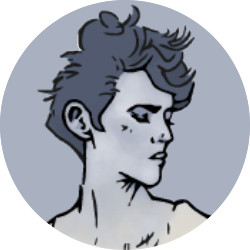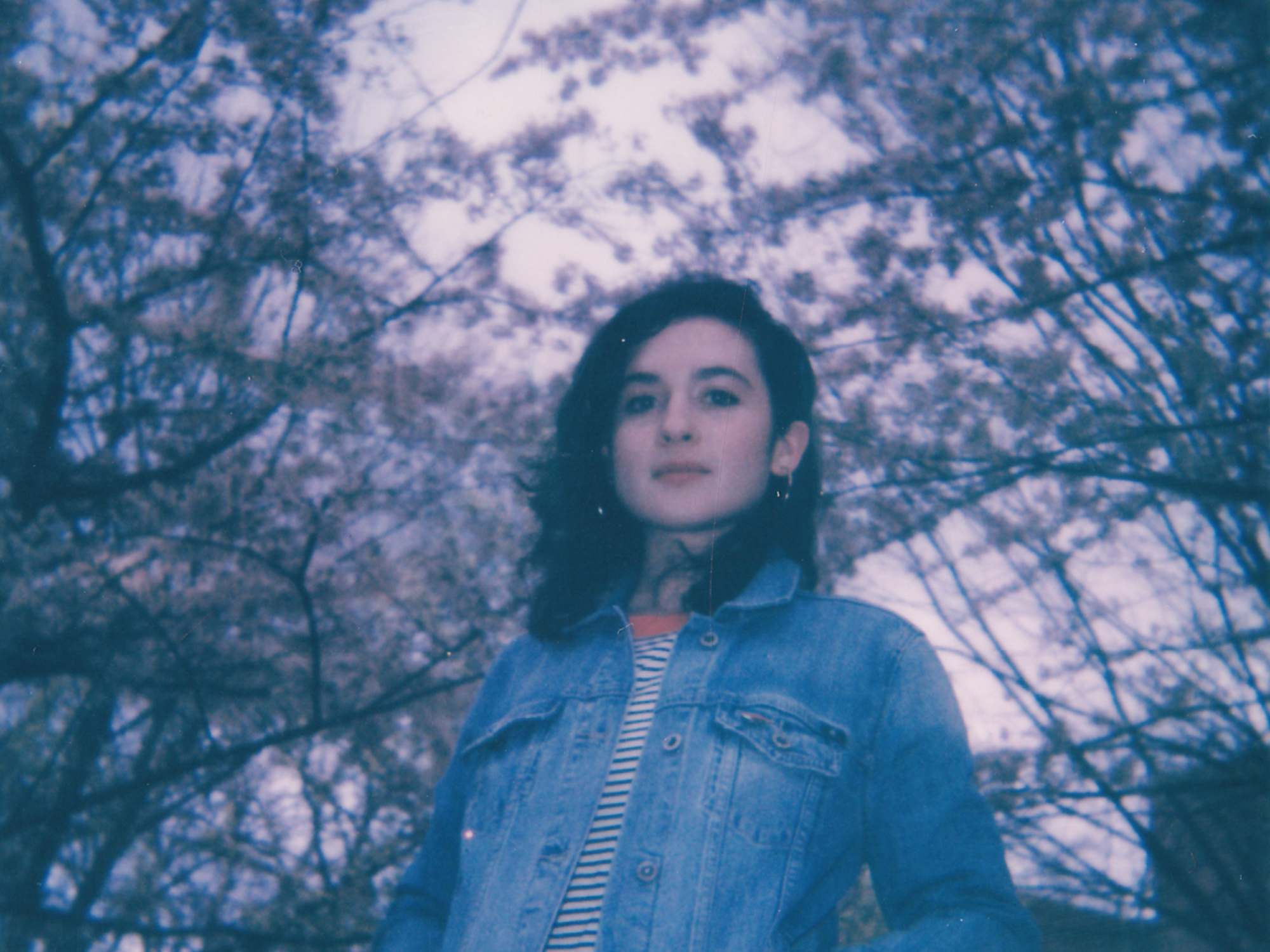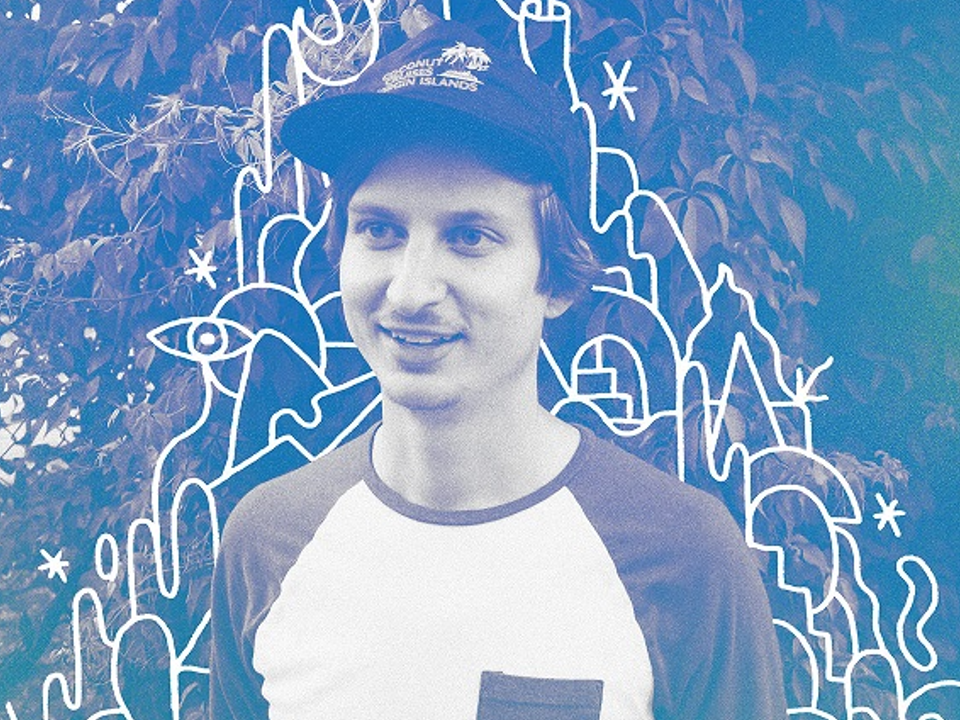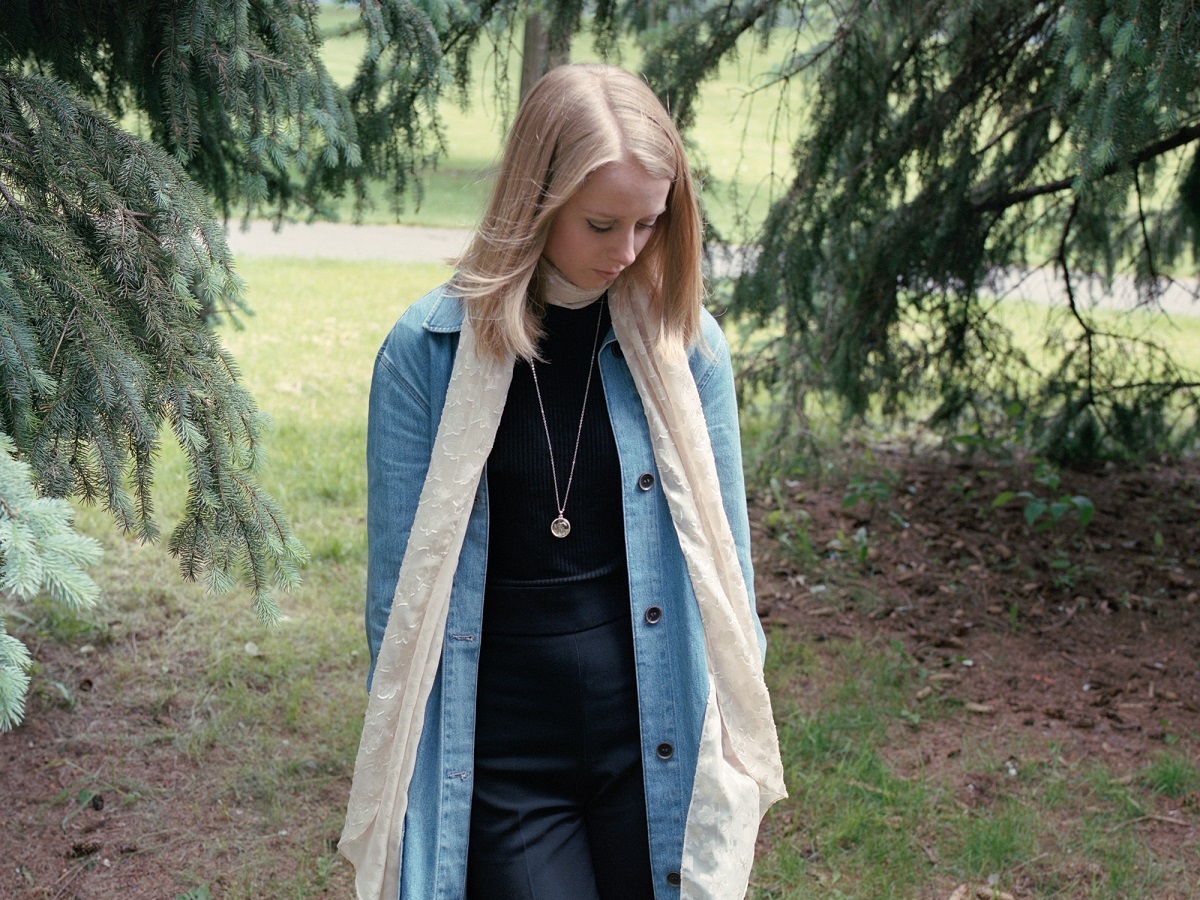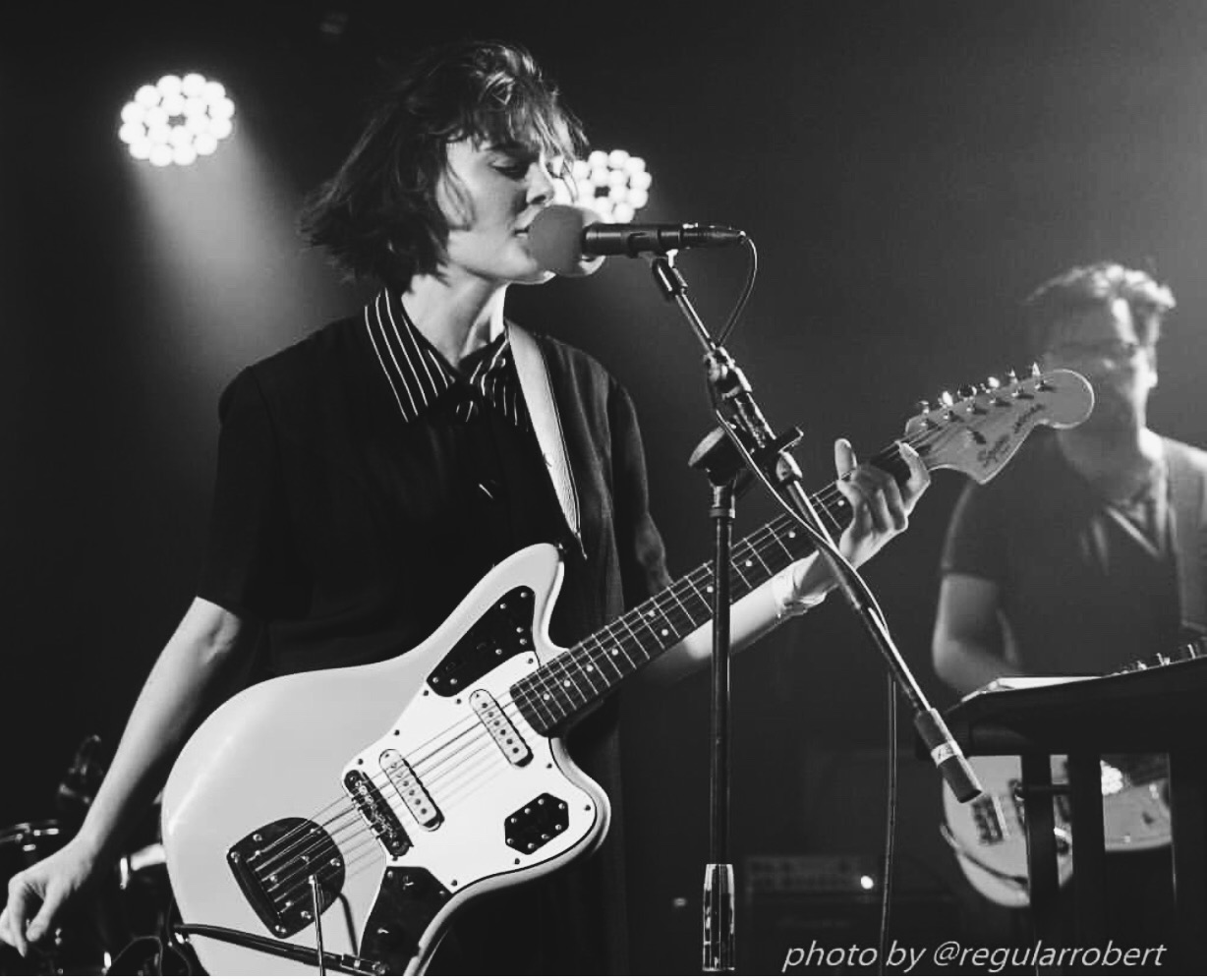
The Interview
How long have you been writing songs for, and what was is that inspired you to start?
Lauren: I started writing music about ten to twelve years ago. What inspired me was: my friends in high school were in the high school talent show, and a couple of my good friends learned a song on guitar and performed together. I was so jealous. I was like, “They look so cool.” So, it was pure jealously that first inspired me to pick up the guitar [laughs].
After that, I decided that I was interested in learning how to play guitar and learning how to write songs, so I got one of those off-brand guitars you can pick up from your local music store. I got a book of tabs, and it just shows you where to put your fingers, basically. I looked up the chords for my favourite Green Day song at the time, which was Good Riddance because that was what I thought was cool, and it felt really, really natural. I didn’t have anyone showing me what to do or anything, I just kinda pieced it together. Once I realised I could play someone else’s songs, it made me want to insert my own meaning and my own words.
How similar is what you’re doing now to what you thought you might be doing when you started out?
Lauren: Wow, it’s a lot different now. I started on acoustic, playing solo, and I always in the back of my head thought it would be really neat to maybe do a full band, but I didn’t really know how to get there. I didn’t know how people found bandmates, or how you even write music for a full band. It’s definitely not what I imagined, just what I’d hoped for.
So is the band a conventional unit, or is it more of a conduit for your own material?
Lauren: I think it’s a good mix of both, actually, in that every band member contributes, but it’s also definitely an outlet for my feelings and my words.
I guess the reason I think it’s more of a hybrid is that I do write the songs ninety-five-percent of the time, and then I’ll go to band practice and I’ll sing a song on guitar, but then as a band we’ll flesh out the rest together. As I’m playing, the guys will make up their parts, and I’ll be like, “No, I don’t like that”, or “Yeah, that’s cool — let’s keep that.” So, it is a little more collaborative than a solo artist with a band.
I think it’s unconventional in some ways because we like to introduce a lot of different instruments. For example, our new songs that we’re writing, we’re introducing sleigh bells, which I’m really excited about. We also have a synthesizer and an analog drum machine, so there are a lot of things that aren’t conventional about it in terms of the instruments. And I would also say genre-wise, we’re still exploring, and we’re not very stringent about what a song has to sound like. We’re very fluid genre-wise.
I must admit that when putting together the compilation, I found it a little difficult from sonic and genre perspectives to get my head around where your place was in the context of the overall record. Is that something that you find yourselves, perhaps when booking shows, or is is just me?
Lauren: No, I definitely think about it a lot: how it’s kinda trickier to market in a way, because there’s not a specific genre or a specific band we can point to and be like, “We sound exactly like them.” There’s a big pop influence in our music, so I like to think of it as just indie-pop and indie-rock mixed together.
But yeah, I think about that a lot. When we’re booking shows though, it actually works to our advantage, because we fit in really well with poppy, synth-driven acts, but we can also accommodate… For example, our last show we played was with this experimental band called Merel and Tony — they’re like, indie-experimental — and they do kinda jazzy, weird modulations, but it was such a fun fit. It totally worked.
Okay, so what is your songwriting process before you take a song to the band?
Lauren: I tell people I’m kind of a lazy songwriter — it takes me a few months to think of anything. Well, not a lazy songwriter — I’m a slow songwriter. Basically, what happens is, if I get to a place emotionally where I feel like I’m welling up with feelings and I need some sort of outlet, I’ll finally, reluctantly go to my guitar and start noodling around. Usually after a couple of hours I’ll find something cool on the guitar that inspires me. Alternatively, I’ll be walking around my neighbourhood, just to be with nature and my feelings, and I’ll think of maybe a line that’ll inspire the rest of the lyrics, and the rest of the lyrics I’ll marry to some music.
When you hit upon that initial idea, how long does the rest of the song generally take to develop?
Lauren: If the lyrics or the music are there, I try to get it all done in a month. I’ll take vocal notes on my phone, and I’ll keep revisiting it a little bit at a time. This is really bad, but my favourite time to do it is while I’m driving, while I’m stuck in traffic and there’s nothing else to do and I’m super bored. [laughs] This is Houston — you sit for thirty minutes to an hour every day. So, while I’m sitting at a stop light, I’ll be messing around with melodies. Usually by the end of a few weeks, I’ll have something that I can actually present.
How quickly do you all connect with one another’s ideas when you take a song to the rest of the band?
Lauren: It’s been great; it’s been pretty instant. Just last week I presented a song idea, and actually on this one I did do a demo — I was able to do a really shoddy home recording that had the melody and the piano, so it kinda got everyone’s gears turning. But basically, I started playing the song in practice, and the guitarist just kinda noodled around — instantly he thinks of things that I really, really like. Our drummer’s like that too, and our bassist. They just pretty much immediately, within a few minutes, lock into something that we all really like.
Is there a particular mood you tend to be in when you do your best writing?
Lauren: Yeah, when I’m so deep in existential dread — that’s when I write my best stuff. I guess, also, some of the songs are about a really strong romantic feeling, so I guess any strong feeling.
When you get deep into a song and are connecting with these feelings, how does that affect your mood subsequently once you’ve finished writing?
Lauren: Oh, that’s a good question. I feel comforted on some level. I feel the same way — if I feel really sad and I’m writing and expressing that, I’ll still feel sad but I’ll feel a little like: ‘Wow! I made this beautiful thing.’ So maybe it’s not to waste; maybe I’m not wasting this awful feeling. It’s kinda satisfying.
Are there any especially prominent creative obstacles you face?
Lauren: I’m not classically trained on guitar at all, so that’s kinda hard. I utilise a capo to kinda add variety to the music, but my guitar parts are really simple, and I think that’s an obstacle: creating interest when I’m working with really simple parts.
Is that something you’re keen to try to improve?
Lauren: I’m really impressed with what I’ve been able to create with such little training and everything. I would like to buckle down and maybe learn some skills and challenge myself a little bit.
What do you feel is the most important element of a Velveteen Echo song?
Lauren: Well, now that we have nine songs written, I think going forward, as I’m writing songs, I’m keeping in mind, “How will this fit into our set?” It’s okay if it extrapolates a little, but is it not gonna fit at all? I want it to have a similar dreamy vibe. Me and our guitarist, Jake, we tend to gravitate towards the same guitar tones, so that really helps add consistency. I guess the most important thing is having a dreamy tone. I really like songs with a melancholy undertone, because I think the reality is life can be hard and kinda sad, and I like exploring that theme in the music.
Is there anything that irritates or frustrates you about the genres of music you fall into?
Lauren: I think what can be annoying is when people aren’t flexible, and they’re like, “Well, you’re either pop or you’re shoegaze. You can’t be both.” And we kinda are both. It’s nice when people have an open mind when listening to our music, for sure. Some of my favourite bands in Houston that I would be really excited to play with, they’re considered more hardcore, and so we don’t really get invited as often on those kinds of bills. I think it’d be fun, but in that way our genre, even being associated with pop, excludes us from those bills sometimes, unfortunately.
What do you feel that you gain from being artistically, creatively inclined?
Lauren: I feel like I gain a sense of purpose, because I think there’s a lot more to life than just eating and sleeping and dying. In between being born and dying, there are all these really big questions we have to contemplate, like: What it means to be human; What it means to love someone; The problem of pain: Why do people suffer? I love exploring that. Sometimes I like exploring in an enigmatic way in my lyrics. It really gives me a sense of purpose: that I can talk about these big questions in a creative way and share it with people.
You used the word ‘enigmatic’ there, which I think describes your lyricism very well. Is that something you always set out to be when writing, or is it often just the way it pans out?
Lauren: I definitely think it used to be intentional. I was in a relationship; I wasn’t happy. I was writing songs about it but I had to do it in a secret way, because I wasn’t ready to rock the relationship yet. So, the songs might have been melancholy, but I don’t think it was clear what I was sad about. So that was purposeful. A lot of the songs I’ve written are enigmatic on purpose. Also, I think another reason I like writing that way is that sometimes I think being really specific is kinda cheesy and hard to relate to.
Is there anything that you specifically hope to communicate to people through your work?
Lauren: Even if it’s in an indirect way, I want people to listen to my music and feel like it’s okay to be a little different; it’s okay to feel sad sometimes — it’s part of life. I want people to feel encouraged to create and to feel things.
Finally, to what extent would you like your creative output to define you as a person?
Lauren: Oh, boy. [laughs] I don’t want how much I create to ever define me because how many songs I put out a year really fluctuates. So, I think that’s a really volatile way to define your value. In some ways, I don’t want it to define me at all — I think there’s a lot more to me than what I can make: there’s the moral choices I make; how I treat the underprivileged people in my community. I hope that answers the question! [laughs] In some ways, yes, and in some ways, no.
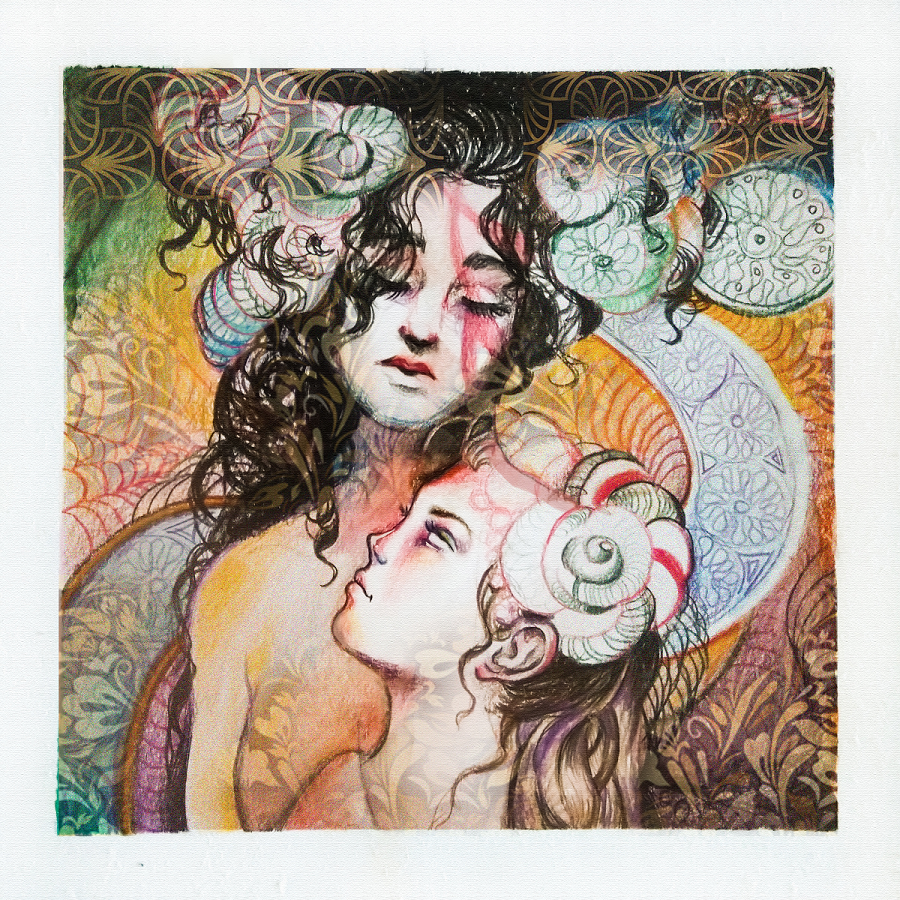 Velveteen Echo featured onAlternative Melodies 7
Velveteen Echo featured onAlternative Melodies 7You can stay updated with the band on Facebook and Instagram, and stream or purchase their music over on Bandcamp.
If you enjoyed reading this interview and happen to think we're doing something right, please consider sharing the link -- whether on social media, or just with a friend, it'd really help us out! We're also on Facebook, Instagram (@alonelyghostburning) and Twitter, so if you'd like to keep up-to-date with the publication of new content, and also provide us with a whole heap of motivation, please do give us a like or follow.
